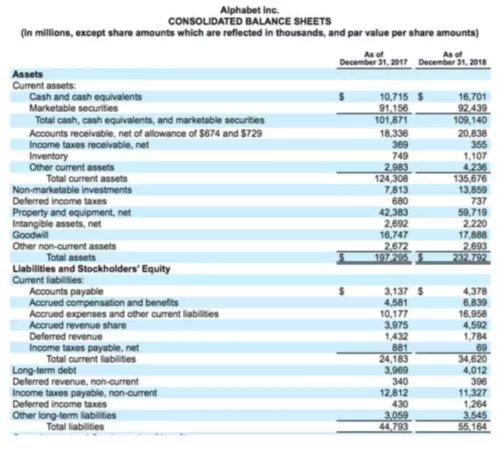The 25 Most Influential Philosophers of All Time A Philosophy Study Starter

Descartes has often been called the father of modern philosophy, and is largely seen as responsible for the increased attention given to epistemology in the 17th century. Aristotle provided a complex synthesis of the various philosophies existing prior to him. It was above all from his teachings that the West inherited its intellectual lexicon, as well as problems and methods of inquiry. As a result, his philosophy has exerted a unique influence on almost every form of knowledge in the West and it continues to be a subject of contemporary philosophical discussion. What https://forexarena.net/ follows is a list, in order, of the most influential philosophers who ever lived. Most of the names below will be familiar, though you might find a few surprises.
- In his work De motu musculorum, Galen explained the difference between motor and sensory nerves, discussed the concept of muscle tone, and explained the difference between agonists and antagonists.
- Galen also played a major role in the discoveries of the central nervous system.
- In the Abbasid period (after 750) Arab Muslims began to be interested in Greek scientific and medical texts for the first time, and had some of Galen’s texts translated into Arabic, often by Syrian Christian scholars (see below).
- It’ll help you figure out what got them there and how you can do it, too, regardless of the level of your income.
- Nietzsche’s writing spans philosophical polemics, poetry, cultural criticism, and fiction while displaying a fondness for aphorism and irony.
The Tale of Two Doctors: The First Paycheck
Because our influence rankings measure the raw permeation of citations, writing, and ideas originating with each of these thinkers, the rigid prejudices that have persisted throughout history are also reflected on our list. This is not an endorsement of those prejudices-merely a faithful reporting on a subject which is inherently reflective of those prejudices. What follows is a list of the The the physician philosopher 25 Most Influential Philosophers of all time based on the period of history between 1000 BCE and 2000 CE.

Personal Finance Books for Doctors, Written By Doctors:
Plato’s influence in Galen’s model showed itself most prominently in what Galen dubbed arterial blood, which is a mixture of nutritious blood from the liver and the vital spirit (the soul) which was attained from the lungs. The vital spirit within this medium was necessary for the body to function and eventually completely absorbed. This process was then repeated indefinitely, according to Galen, so that the body could be replenished with the soul, or the vital spirit. The Antonine Plague was named after Marcus Aurelius’ family name of Antoninus.
Middle Ages
He is considered one of the fundamental figures of modern Western philosophy, with his influence extending to the entire range of contemporary philosophical issues, from aesthetics to ontology to politics, both in the analytic and continental tradition. Hegel’s principal achievement was his development of a distinctive articulation of idealism, sometimes termed absolute idealism, in which the dualisms of, for instance, mind and nature and subject and object are overcome. However, in general, Galen and the ancient Greek medical tradition continued to be studied and followed in the Eastern Roman Empire, commonly known as the Byzantine Empire. All of the extant Greek manuscripts of Galen were copied by Byzantine scholars. In the Abbasid period (after 750) Arab Muslims began to be interested in Greek scientific and medical texts for the first time, and had some of Galen’s texts translated into Arabic, often by Syrian Christian scholars (see below).

The Antonine Plague
His writings influenced Voltaire and Jean-Jacques Rousseau, many Scottish Enlightenment thinkers, as well as the American Revolutionaries. His contributions to classical republicanism and liberal theory are reflected in the United States Declaration of Independence. Nietzsche’s writing spans philosophical polemics, poetry, cultural criticism, and fiction while displaying a fondness for aphorism and irony. He also developed influential concepts such as the Übermensch and the doctrine of eternal return. In his later work, he became increasingly preoccupied with the creative powers of the individual to overcome cultural and moral mores in pursuit of new values and aesthetic health. His body of work touched a wide range of topics, including art, philology, history, religion, tragedy, culture, and science, and drew inspiration from figures such as Socrates, Zoroaster, Arthur Schopenhauer, Ralph Waldo Emerson, Richard Wagner and Johann Wolfgang von Goethe.
Milestones to Financial Independence Worth Celebrating
It spawned from his popular email series, which served as the bones for the book. After filling in those bones with some meat, the book became a pretty solid way to catch up to speed on your personal finances. The personal finance topics you wish you’d learned in medical school. Then, I created the financial freedom I needed to find fulfillment and balance in my life. Find out where this influencer ranks among philosophy’s major branches and subdisciplines.
It was also the haunt of notable people such as the historian Claudius Charax, the orator Aelius Aristides, the sophist Polemo, and the consul Cuspius Rufinus. The following books are either written for physicians as a target audience and/or are written by physicians. If you want the comprehensive argument on why passively managed low-cost index funds are the best way to invest, this is the book for you. It lays down the major arguments against speculation, technical analysis, fundamental analysis, factor-based investing, and much more. If you aren’t convinced that low-cost passively managed index funds is the right thing for you, then you should read this book.
Whether you’re majoring in philosophy, beginning your personal journey to better understand the universe, or you just have some humanities credits to fulfill, this is a great place to start. Logically speaking (which is an important way to speak within the context of philosophy), the most influential philosophers in history are responsible for the most influential ideas in history. These are the thinkers who put forth notions that still inform our understanding of the human condition today—groundbreaking, illuminating, ingenious (and frequently debunked) notions about reasoning, reality, spirituality, consciousness, dreams, social organization, human behavior, logic, and even love. Vesalius’ most famous work, De humani corporis fabrica, was greatly influenced by Galenic writing and form. Seeking to examine critically Galen’s methods and outlook, Vesalius turned to human cadaver dissection as a means of verification. Galen’s writings were shown by Vesalius to describe details present in monkeys but not in humans, and he demonstrated Galen’s limitations through books and hands-on demonstrations despite fierce opposition from orthodox pro-Galenists such as Jacobus Sylvius.
Here are ten milestones on the financial independence journey that should make you pause, take notice, and take a moment to enjoy. My mission is to teach doctors how to create the life they deserve – one thought at a time. Understanding our own behavior when it comes to finance is essential because it helps us mitigate wrong-for-us decision making around money. Unless you know these roadblocks exist, you can’t do much to stop them from derailing your financial goals. We say things like, “when ___ happens, I’ll be happy.“ This is called the Arrival Fallacy.
Jean-Paul Charles Aymard Sartre was a French philosopher, playwright, novelist, screenwriter, political activist, biographer, and literary critic. He was one of the key figures in the philosophy of existentialism and phenomenology, and one of the leading figures in 20th-century French philosophy and Marxism. His work has also influenced sociology, critical theory, post-colonial theory, and literary studies, and continues to influence these disciplines. Ludwig Josef Johann Wittgenstein was an Austrian-British philosopher who worked primarily in logic, the philosophy of mathematics, the philosophy of mind, and the philosophy of language. He is considered by some to be the greatest philosopher of the 20th century. From 1929 to 1947, Wittgenstein taught at the University of Cambridge.
As I read more quality books, I’ll add them here to the appropriate section. If I read a book that’s no good (there are a lot of books that aren’t that helpful), I’ll keep it to myself. An interesting book that serves partly as a book of definitions (want to know what the difference between a treasury bond and a junk bond is?) and also as a guide towards how to make frugal (buying in bulk) and investment choices. If I am being honest, I’d recommend the other books in this section ahead of this one, but it is still good enough to make the list.
Due to his political publications, Marx became stateless and lived in exile with his wife and children in London for decades, where he continued to develop his thought in collaboration with German thinker Friedrich Engels and publish his writings, researching in the reading room of the British Museum. Friedrich Wilhelm Nietzsche was a German philosopher, cultural critic, composer, poet, and philologist whose work has exerted a profound influence on modern intellectual history. He began his career as a classical philologist before turning to philosophy. He became the youngest person ever to hold the Chair of Classical Philology at the University of Basel in 1869 at the age of 24. Nietzsche resigned in 1879 due to health problems that plagued him most of his life; he completed much of his core writing in the following decade. In 1889, at age 44, he suffered a collapse and afterward a complete loss of his mental faculties.
This is a bird’s eye view of philosophy, an overview from the very top, but by no means a comprehensive nor probing dive into any one area. Galen’s work on animals led to some inaccuracies, most notably his anatomy of the uterus which largely resembled a dog’s. Though incorrect in his studies of human reproduction and reproductive anatomy, he came very close to identifying the ovaries as analogous to the male testes. Reproduction was a controversial topic in Galen’s lifetime, as there was much debate over if the male was solely responsible for the seed, or if the woman was also responsible. He was ordered to accompany Marcus and Verus to Germany as the court physician.



